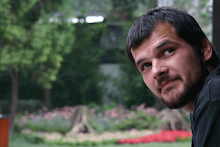Hey.
I am doing research on the Hakka people in Sichuan. The Hakka are sometimes referred to as the "Jews of China." They reportedly originated in the Yellow River Valley and migrated south to Fujian and Guangdong to escape wars and famines. They settled in and around the Pearl River for many centuries, retaining their unique culture and language. They are also known as "Kejia" which means guests or guest family in Chinese. They have been on the move for 2000 years.
They migrated across the globe after the Taiping Rebellion -- a Hakka led rebellion against the Qing -- and many of the Chinatowns we have come to take for granted were founded by Hakka people.
For me, the interest lies in their migration to Sichuan during the Ming and Qing Dynasties after Sichuan was decimated by constant warfare. Settlers were encouraged (8 pieces of silver for the men, 6 for women and children) to move across the nation to Sichuan and build a life here, in the "Land of Abundance." They did, and have flourished to this very day.
What interests me the most is the connection between the Taiping Rebels that were decimated at the Battle of the Dadu River in 1865 by Qing Imperial forces and the gong fu river lake people of today. Legend has it that the rebels fled into the hills and settled near present-day Yaan. Those rebels were trained in martial arts and passed on what they had learned, eventually leading to the school in Hanyuan that I train at.
My home is getting torn down next week, as some of you may know, and the village that is being razed is also an ancient Hakka village dating back at least 200 years. My neighbors are all Hakka and some of them still speak their own langauge. Almost every family has a book of records that details their migrations across China over the past 500 years. So the story of "farmers getting pushed off their lands" has now developed into something much more interesting: another move for the harried Hakka.
its not just how farmers adapt to the city, but how Hakka farmers stay Hakka in the face of urbanization and modernity. Its not just how gong fu adapt to the commercialization of culture and the dissipation of the "noble warrior," but about the legacy of Han-Hakka rebels reaching from beyond the grave to leave their imprint on Modern China.
Please, feel free to comment.
Subscribe to:
Post Comments (Atom)

4 comments:
very interesting.
i've always wondered why the hakkas migrated to Sichuan and when. I'm of hakka ancestry living in singapore, born in malaysia, ancestors from Songkou. Meixian.
and now the turk german american living in the hakka village, training in hanyuan passes his wisdom onto a wider audience of euro, asian, african and north american readers -- an ancient act, with a keyboard 'stead of a quill or a brush. no matter the method it's people like you that make sure the stories never die.
kaydee my sweet thank you so much hehehe ... yo:
the Hakka actally have a serious group of academics fighting to save the culture, most of them are based in Sigapore, Malaysia, Australia and the US ... thats where such scholarship gets the support it needs, whereas in China proper unless the CCP says its all good, it aint worth researching. Too bad. A lot of stories are dying and people fading into an abyss of non-memory due to political repression and rampant greed.
here are a couple of links for you kinkonkid and Nicole don't sweat it you know i'm on it.
http://www.asiawind.com/hakka/
http://www.asiawind.com/pub/forum/fhakka/mhonarc/msg02145.html
http://www.asiawind.com/pub/forum/fhakka/mhonarc/msg00475.html
Post a Comment